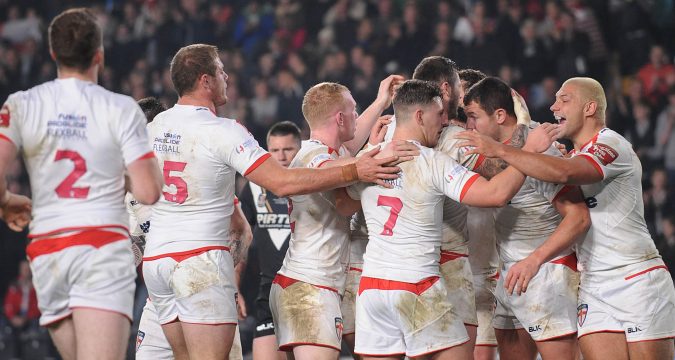 It took them a while to get going, but England eventually ran out deserved winners in the first match of the Baskerville Shield series against New Zealand, winning 26-12 at the KC Stadium.
Steve McNamara's side were simply b
It took them a while to get going, but England eventually ran out deserved winners in the first match of the Baskerville Shield series against New Zealand, winning 26-12 at the KC Stadium.
Steve McNamara's side were simply b  It took them a while to get going, but England eventually ran out deserved winners in the first match of the Baskerville Shield series against New Zealand, winning 26-12 at the KC Stadium.
Steve McNamara's side were simply b
It took them a while to get going, but England eventually ran out deserved winners in the first match of the Baskerville Shield series against New Zealand, winning 26-12 at the KC Stadium.
Steve McNamara's side were simply bCopyright © 2025 League Publications Ltd
